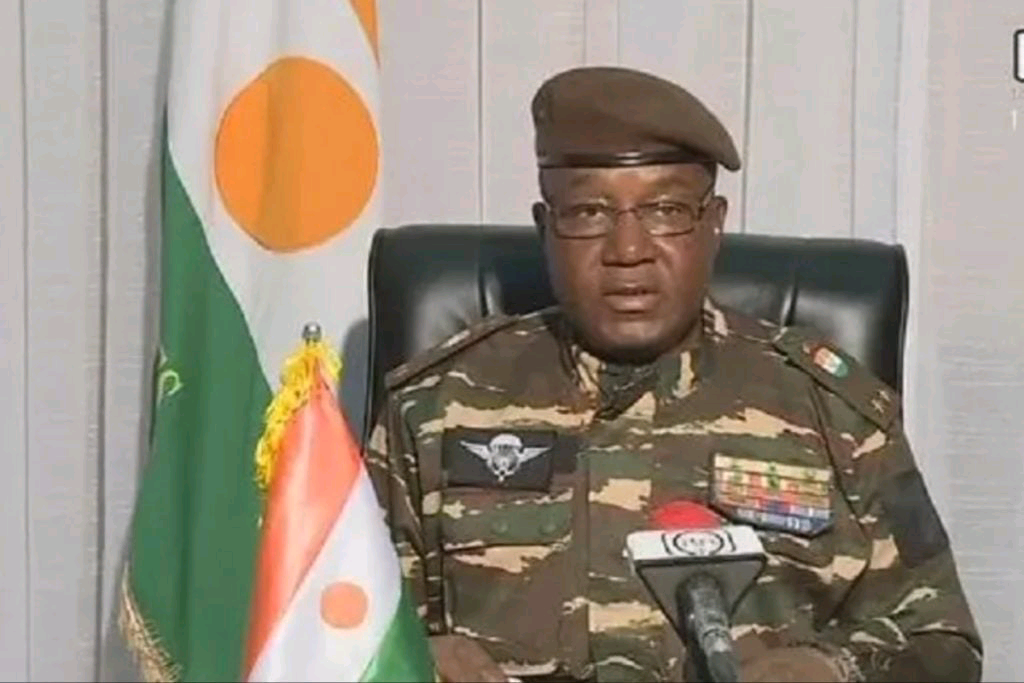Three weeks after mutinous soldiers overthrew the democratically elected president of Niger, the country’s citizens are preparing for a possible invasion by countries in the region.
Concerned about the mounting danger from ECOWAS, a regional organization in West Africa, residents of the capital city of Niamey are pushing for a massive recruitment of volunteers to help the army reinstate deposed President Mohamed Bazoum.
After the junta in Niger missed a deadline to release and reinstate Bazoum, ECOWAS “activated a standby force” to restore order in the country.

Niamey residents are leading the charge to get thousands of people around the country to sign up as Volunteers for the Defence of Niger.
Amsarou Bako, one of the group’s founders, told The Associated Press on Tuesday that the organization will fight if necessary, help with medical treatment if necessary, and give technical and engineering logistics if necessary.
It’s inevitable. When something like this occurs, we need to be prepared,” he said.
On Saturday, a recruitment push will begin in Niamey and other cities that the invading force would pass through, including those close to the borders with Nigeria and Benin.
According to Bako, anyone over the age of 18 can sign up, and the list will be provided to the junta so that they can use it to call upon people as needed. The junta isn’t part of this, but they’re aware of it, he claimed.
The impasse between Niger and ECOWAS shows no indications of defusing, increasing tensions in the region despite signals from both parties that they are open to a peaceful resolution of the problem.
After repeatedly rejecting ECOWAS’ attempts at discussions, the junta announced last week that it was willing to dialogue with the group. However, it quickly charged Bazoum with high treason and recalled its ambassador from neighboring Ivory Coast.
The first meeting of the ECOWAS defense chiefs since the organization announced the deployment of the standby force is scheduled for this week.
Experts on conflicts warn that if the force decides to invade, it will likely involve several thousand troops and have disastrous effects.
According to Mucahid Durmaz, senior analyst at Verisk Maplecroft, a global risk intelligence firm, a military involvement with no end in sight risks igniting a regional war, with disastrous repercussions for the vast Sahel, which is already beset by insecurity, displacement, and poverty.
One of the few remaining democracies south of the Sahara, Niger was considered an ally in the fight against the spread of jihadist militancy related to al-Qaeda and the Islamic State.
About 2,500 military personnel from the United States and France, Niger’s former colonial master, are stationed in the area to undertake joint operations and train Niger’s armed forces.
France and the United States have halted military activities since the coup, and jihadist attacks have increased. On Tuesday, the Ministry of Defense said on state television that at least 17 soldiers had been killed and over two dozen wounded in an ambush by radicals in the Tillaberi district.
On Tuesday afternoon, as a military group was making its way between the villages of Boni and Torodi, they came under attack. The injured were taken to Niamey for treatment.
According to journalist and senior research researcher at the Soufan Centre, Wassim Nasr, this was the first serious attack against Niger’s army in six months and is a warning sign of future escalation.
Today, we have the Islamic State and Jama’at Nusrat al-Islam wal-Muslimin (an al Qaeda offshoot) staking claim to areas left unguarded by the coup. The conflict between the two factions, he emphasized, must be taken into account.
Analysts predict that the longer the coup drags on, the more probable it is that the international community will be forced to accept the status quo as the junta cements its grip on power.
The United States supports ECOWAS’ dialogue efforts and has contingency preparations in place, according to Secretary of State Antony Blinken, who said on Tuesday that there is still time for diplomacy to return the country to constitutional governance.
According to a US official, the next US ambassador to Niger, Kathleen FitzGibbon, will arrive in Niamey by the end of the week.
It’s been almost two years since the United States last posted an ambassador there. Some authorities on the Sahel claim that as a result, Washington has lost contact with crucial figures and information in the region.
According to Michael Shurkin, director of global programs at 14 North Strategies and a senior fellow at the Atlantic Council, the United States is in a tough spot with no viable options. 14 North Strategies specializes in risk consulting services in Africa.
It’s either take a stand for democracy and risk alienating the junta and driving them closer to Russia, or compromise with the junta in the hopes of mending fences and restoring constructive relations.
Many people in Niger fear they will be attacked while regional and western governments try to figure out what to do.
There is still much we don’t know about Niger’s volunteer force, but comparable efforts in neighboring nations have met with varying degrees of success.
Volunteers in Burkina Faso’s army’s fight against the country’s Islamic insurgency have been accused of abuses by rights groups and residents.
Bako, one of the leaders of the organization coordinating Nigerien volunteers, noted that the circumstances in Niger are unique.
The Burkinabe have taken up arms against their own brothers, and the (volunteers in Burkina Faso) are fighting them. Our people, he added, are different because they will resist an invasion.
Support InfoStride News' Credible Journalism: Only credible journalism can guarantee a fair, accountable and transparent society, including democracy and government. It involves a lot of efforts and money. We need your support. Click here to Donate
